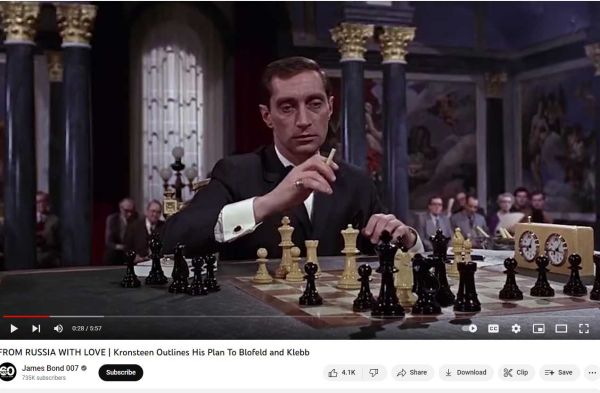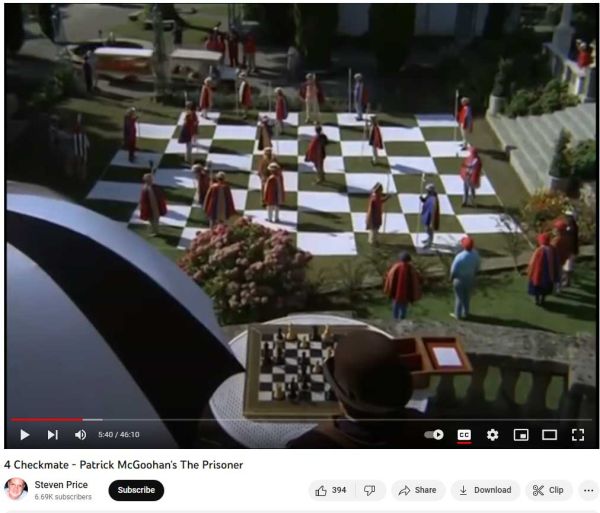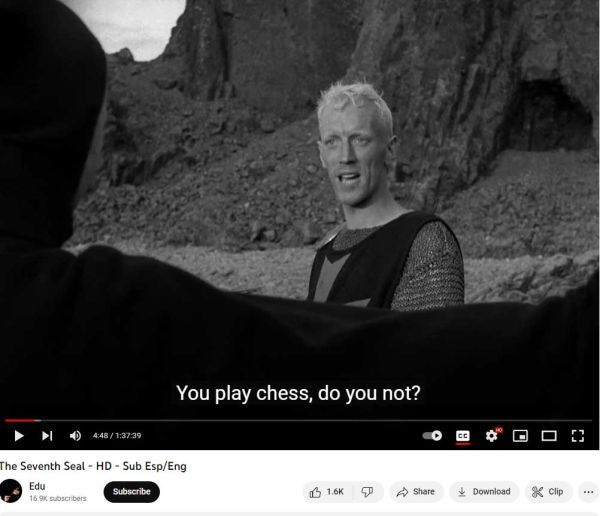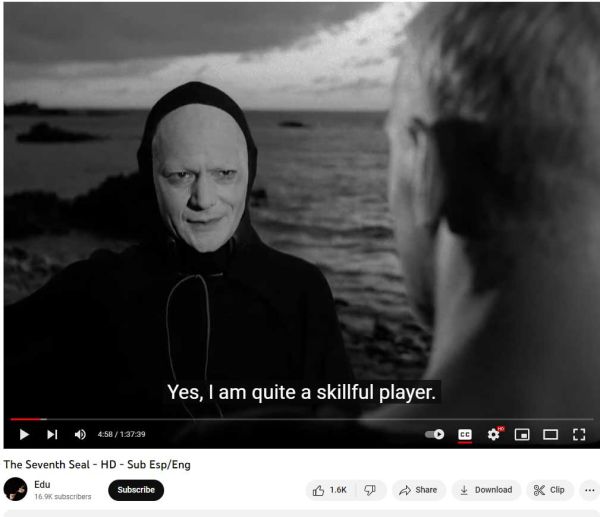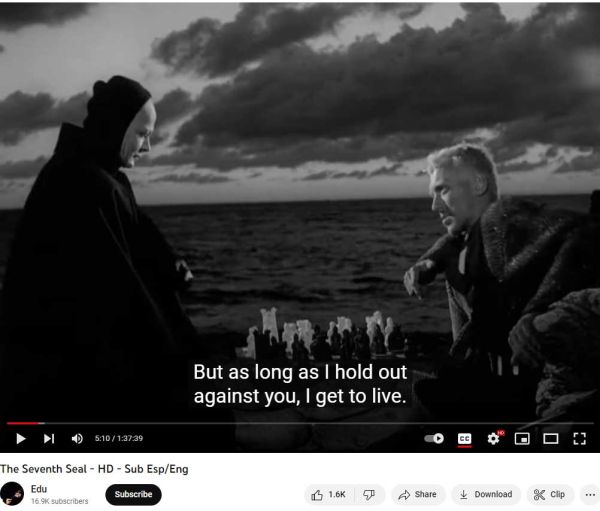The Importance of Chess
The Importance of Chess
My father turned me on to chess when I was just a boy. He and most of his friends had taken part in World War II, and he knew I read war-comics like Sergeant Rock, Johnny Cloud the Navajo Ace, and Tank-Commander Jeb Stuart, who talks to the ghost of his Confederate-General ancestor—all published by DC Comics.
Father said, "You'll like chess. It's like war." He actually sat down to teach me, took me through the rudiments of the game, and played a few games with me. In hinesight, I realize that chess taught me more than the rudiments of war. It taught me to strategize in a more general way about my life—to think two and three moves ahead, both my moves and my opponent's various counter-move options, and to only act after thinking fundamentally about what I wanted to achieve, as well as the possible consequences.
Over the years, the reappearance of chess as a motif in television shows and movies has impressed me. I remember a chess match in the James Bond movie From Russia with Love, filmed in 1963, starring Sean Connery as Bond. Tov Kronsteen, a chessmaster and member of SPECTRE, a world-wide criminal organization, plays chess in Venice, Italy, before a live audience and judges.
I also remember an episode titled "Checkmate," from the 1960s mini-series The Prisoner, starring Patrick McGoohan, in which chess figures prominently. Although the Prisoner, "Number 6," and his fellow captives live in comfort on their island-home, they have to submit to authority. But authority should not let its captives play chess because it teaches self-determination, which is also known as life, liberty, and the pursuit of happiness. If the captives have to serve as pawns on someone else's chess game, they will not want to be pawns much longer.
You either move forward, or you give up! Chess teaches the player offense and defense as ongoing concerns in your battle to survive. As long as we can attack and hold off the enemy, we get to live. Chess also gives a player a sense of geo-politics from a personally engaged perspective, because you have to assume the leadership of your own nation, with a whole hierarchy of troops that you can use to defend it.
Nothing expresses the game of chess and the will to survive like the 1957 film The Seventh Seal, starring the late Max von Sydow. He plays the dispirited knight Antonius Block, who returns to Sweden after a failed Crusade to free the Holy Land from the Saracens. As he kneels in prayer on the beach, he looks up and sees a figure in a black cassock. "Who are you?" Block asks.
"I am Death," the figure replies.
"I have been expecting you," Block replies.
"Then you will come with me?" Death asks coldly.
"Wait a moment!" Block says.
"You always say that," Death replies. "I wait for no one."
"You play chess, don't you?" Block asks.
Death admits that he plays chess.
They strike a deal. As long as Block defends himself against Death on the chess-board, Death will let him live. The image of him playing chess against Death is iconic in classical cinema.
Chess requires its players to imagine themselves as "King." The King is the most important piece on the chess-board, and his defense requires a player to understand the capabilities and limitations of the other pieces, so that he can use them effectively. The King has to learn their capabilities, since he can do little by himself. Other than command, the King can move only one square at a time, like any person cooped up in a castle.
- The Knight moves as an "L," two spaces forward, one space sideways. The Knight can also slip past other pieces occupying those spaces.
- The Bishop can move from one end of the board to the other, but only diagonally.
- The Rook also moves from one end to the other, but only in a straight line. If a player "castles" a King, the Rook stands guard, with the King in the corner, a row of pawns in front—leading to a higher proportion of "stalemates," where neither side wins.
- The pawns cannot do much either, just one or two spaces forward. That is the reason why each side gets eight of them; but an important piece like the Queen will hardly sacrifice itself to take a Pawn. The row of Knights, Bishops, and Rooks behind the Pawns protect them.
- Curiously, the Queen is the most versatile, and besides the King, the most important. That has always interested me. In fact, all of the pieces have a sort of psychological application, besides a military one.
I thank Father for teaching me chess. If nothing else, you learn to plan like a grown-up, think two or three steps ahead, and recognize the risks from potential opponents. Just developing the mechanics of a thought-life and learning how to organize your thoughts to cope with situations is the only way to live.

